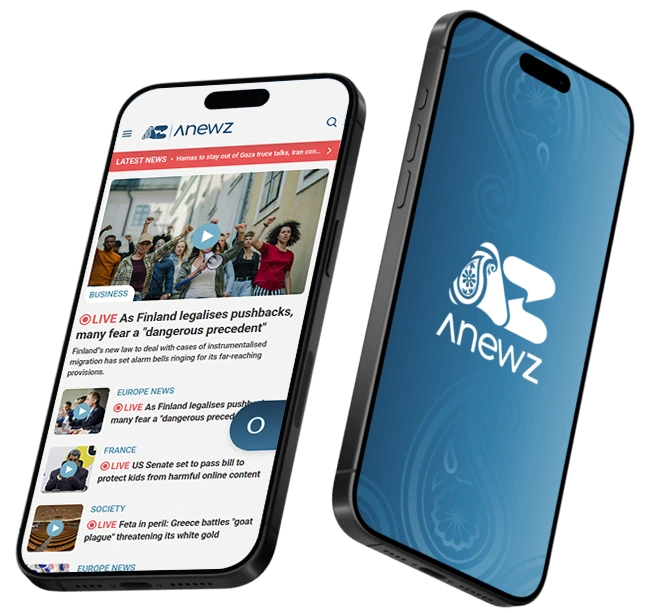U.S.-Azerbaijan Strategic Working Group to begin operations soon
The U.S.-Azerbaijan Strategic Working Group will begin work soon, the press service of the U.S. Department of State told Report....

U.S. President Donald Trump landed in South Korea on Wednesday for the final leg of his Asia trip, optimistic about striking a trade war truce with Chinese President Xi Jinping after summit talks with South Korea's Lee Jae Myung.
Arriving from Tokyo hours after North Korea test-fired a nuclear-capable cruise missile, Trump is due to address a summit of CEOs and meet with Lee in Gyeongju, a South Korean town filled with historic tombs and palaces.
The main item on Wednesday's agenda will be the unresolved trade agreement between the U.S. and South Korea, before an expected meeting with Xi on Thursday, the prospect of which has already buoyed global markets.
Speaking to reporters aboard Air Force One en route to Gyeongju, Trump dismissed the North Korea missile test and said he was squarely focused on his meeting with the leader of the world's second-largest economy.
"The relationship with China is very good. So I think we're going to have a very good outcome for our country and for the world, actually," Trump said.
He expects to reduce U.S. tariffs on Chinese goods in exchange for Beijing's commitment to curb exports of fentanyl precursor chemicals, he added. The U.S. could halve the 20% levies on Chinese goods it currently charges in retaliation for the export of such chemicals, the Wall Street Journal reported.
Trump made no mention of trade talks with South Korea on Wednesday, with both sides playing down the prospect of a breakthrough in leader talks.
The two allies announced a deal in late July under which South Korea would avoid the worst of the tariffs by agreeing to pump $350 billion of new investments into the United States. But talks over the structure of those investments have been deadlocked.
The leaders will discuss trade, investment and peace on the Korean peninsula at talks on Wednesday, Lee's office said, a reference to engagement with North Korea.
Trump has made repeated calls for a meeting with North Korean leader Kim Jong Un, including during this trip, but there has been no public comment from Pyongyang. Kim has previously said he could be open to talking if Washington stops pressing him to give up nuclear weapons.
A "golden dessert" is on the menu for their working lunch, Lee's office said.
Skipping the main APEC summit, Trump will address the APEC CEO summit, have dinner with Lee and hold bilateral meetings with several countries' leaders, including China's Xi, before departing on Thursday.
Negotiators from the world's top two economies hashed out a framework on Sunday for a deal to pause steeper American tariffs and Chinese rare earths export controls, U.S. officials said. The news sent stocks soaring to record peaks.
Taiwan Foreign Minister Lin Chia-lung said on Tuesday he was not worried that Trump would "abandon" the island in his meeting this week with Xi.
Since taking office in January, Trump has vacillated on his position towards China-claimed Taiwan as he seeks to strike a trade deal with Beijing. Trump says Xi has told him he will not invade Taiwan while the Republican president is in office, but Trump has yet to approve any new U.S. arms sales to Taipei.
China said on Wednesday it "absolutely will not" rule out using force over Taiwan.
Trump told reporters on Wednesday that he did not know whether he would even discuss Taiwan with Xi.
Trump's trip to South Korea concludes a whirlwind swing through the region, among the hardest hit by his tariff policies and increased U.S.-China competition.
In Tokyo on Tuesday, Trump lavished praise on Japan's first female Prime Minister Sanae Takaichi, welcoming her pledge to accelerate a military buildup and signing deals on trade and rare earths.
The U.S. and Japan also released a list of projects in which Japanese companies are eyeing U.S. investments, related to Tokyo's pledge earlier this year of $550 billion in strategic U.S. investments, loans and guarantees in exchange for tariff reprieve.
Washington has pressed South Korea to make a similar arrangement, but Seoul says it cannot afford to pay the $350 billion it pledged upfront. Instead, South Korea has offered a mix of phased investments, loans and other measures.
On Tuesday, South Korean Foreign Minister Cho Hyun said a last-minute concession by the United States could lead to a deal.
A small, silent object from another star is cutting through the Solar System. It’s real, not a film, and one scientist thinks it might be sending a message.
At least 69 people have died and almost 150 injured following a powerful 6.9-magnitude earthquake off the coast of Cebu City in the central Visayas region of the Philippines, officials said, making it one of the country’s deadliest disasters this year.
A tsunami threat was issued in Chile after a magnitude 7.8 earthquake struck the Drake Passage on Friday. The epicenter was located 135 miles south of Puerto Williams on the north coast of Navarino Island.
The war in Ukraine has reached a strategic impasse, and it seems that the conflict will not be solved by military means. This creates a path toward one of two alternatives: either a “frozen” phase that can last indefinitely or a quest for a durable political regulation.
A shooting in Nice, southeastern France, left two people dead and five injured on Friday, authorities said.
U.S. Secretary of Defence Pete Hegseth on Wednesday urged Japan to move swiftly on its plan to raise defence spending but said he had not made any specific requests regarding the scale of the increase during talks with his Japanese counterpart.
Start your day informed with AnewZ Morning Brief: here are the top news stories for 29 October, covering the latest developments you need to know.
U.S. President Donald Trump said on Wednesday that a U.S.-backed ceasefire in Gaza was not at risk after local authorities reported that 26 people had been killed in Israeli strikes, as Israel and Hamas traded accusations of blame for the violence.
South Korea will welcome U.S. President Donald Trump on Wednesday with a replica gold crown and award him with the "Grand Order of Mugunghwa", the country's highest decoration, the presidential office said.
Hurricane Melissa barrelled toward Cuba’s second-largest city on Tuesday after making landfall in Jamaica as a catastrophic Category 5 storm, the strongest cyclone ever recorded to hit the Caribbean island nation.
You can download the AnewZ application from Play Store and the App Store.

What is your opinion on this topic?
Leave the first comment